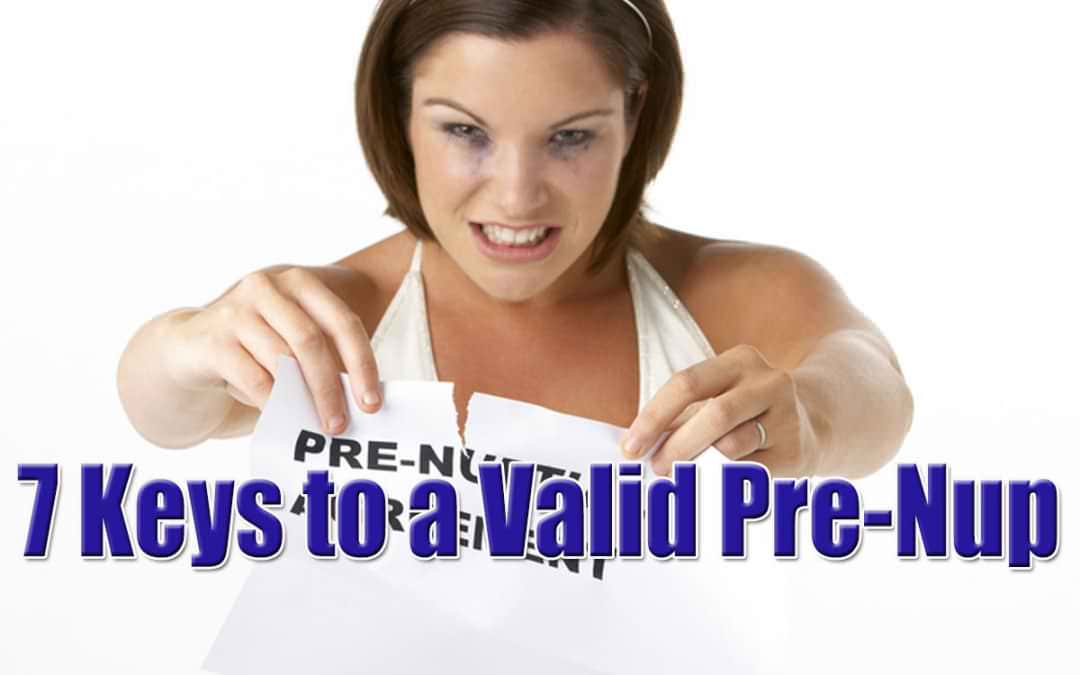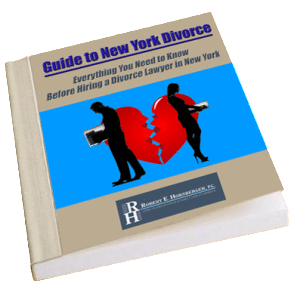As a Long Island Divorce Attorney, I see more and more Long Island couples are choosing to enter into prenuptial agreements in order to protect their interests in the event of divorce. When drawing up the prenuptial agreement in Nassau County or Suffolk County, most future spouses feel they have every reason to believe that it will be valid. However, in some circumstances, these agreements fail and are invalidated when it comes time to use them.
7 Key Concepts to Valid Prenuptial Agreement on Long Island
In order to avoid having your agreement invalidated in New York, there are seven key main concepts to understand.
1. Full and Honest Disclosure
First, both parties to the agreement must give a full and honest disclosure of all assets and debts. One party’s failure to disclose and include even one retirement account can lead to the agreement being invalidated later on. Similarly, if a party hides a debt, it creates the same problem. Since the prenuptial agreement is intended to be a comprehensive agreement that covers all assets and liabilities, anything hidden from a party raises a question of whether the party would have signed the agreement had he or she known about it. Providing false information is even more likely to result in an invalidation of the agreement. Failure to disclose information, or providing false information, could rise to the level of fraud.
2. Both Parties Voluntarily Enter the Prenuptial Agreement
Both parties must enter the agreement voluntarily and without someone else’s coercion. If a party is placed under pressure to sign the agreement, such as being given an agreement to sign the day before the wedding, the agreement can be invalidated. Even if an agreement seems to be fair, any manipulation or tricks that were present could raise a question about the agreement’s validity. Parties should also have an opportunity to negotiate the terms of the contract, which will speak to the fact that the terms were negotiated between equals, rather than one party unduly influencing another. A lack of negotiation could indicate that there was some type of coercion or improper influence that could lead to an invalidation of the agreement.
3. Parties Have the Mental Capacity to Enter a Prenuptial Agreement
Prenuptial agreements may be invalidated if one of the parties to the agreement lacked the mental capacity to enter into a binding agreement. In this case the agreement can be invalidated. Mental capacity could include intoxication by drugs or alcohol, or severe mental illness that would affect the party’s ability to understand the agreement’s meaning and terms.
4. Prenuptial Agreement Must be Fair
A prenuptial agreement that greatly favors one side to the point of “shocking the conscience” may be invalidated. If one side will be awarded nearly everything, and the other receives only a nominal amount, the agreement may be too lopsided and unfair to be enforceable.
5. Parties Must Have Separate Legal Representation
In order for a prenuptial agreement to be effective, each party must have his own legal representation and the ability to negotiate the terms of the contract. Parties cannot use the same attorney, as an attorney cannot represent both parties to a contract. Since these agreements can be rather complex, an attorney can ensure that his client fully understands the terms and the process.
6. Provisions in the Prenuptial Agreement Must be Legal
The agreement cannot contain any provisions that are illegal or “contrary to public policy.” For example, a party cannot dispense with future obligations to pay child support or care for his children. If there are illegal provisions or provisions that are against public policy, it is possible for those specific provisions to be invalidated while leaving the rest of the document intact.
7. Proper Execution of the Prenuptial Agreement
Finally, the agreement must be signed by both parties and also notarized. The absence of proper notarization that verifies the signatures raises a question about the validity of the signatures. The document must also be written in accordance with the laws of New York for a recordable instrument, such as a real estate deed.
Considering a Prenuptial Agreement? Get the Help of An Experienced Long Island Divorce Attorney
Keeping these points in mind is important whether you are thinking of signing a prenuptial agreement or if you are trying to have an unfair agreement thrown out. The circumstances of each case are different, and your Long Island divorce attorney can help you to navigate the law according to your specific situation. If you are considering or are preparing to enter into a prenuptial agreement, or if you are headed for a divorce and want to determine whether your current prenuptial agreement is valid, you will need a trusted and experienced attorney to provide counsel, assistance, and representation. The attorneys at the Law Office of Robert E. Hornberger, PC are experienced in the preparation of prenuptial agreements as well as prenuptial agreement disputes that arise during divorce. Contact our office at 631-923-1910today for a free consultation.
For more information about Prenuptial and Postnuptial Agreements, please read Your Guide to Long Island Prenuptial & Postnuptial Agreements
Download our Free New York Divorce Guide
Our 41-page “Guide to New York Divorce: What You Need to Know Before Hiring a Divorce Lawyer in New York” written by an experienced family law lawyer Long Island’s Robert E. Hornberger, Esq., provides you with real information on the divorce process and the laws it rests upon in the state of New York. This book will help give you a solid foundation upon which you can begin the process of making your family’s, life better. Download your Free Guide to New York Divorce here.








